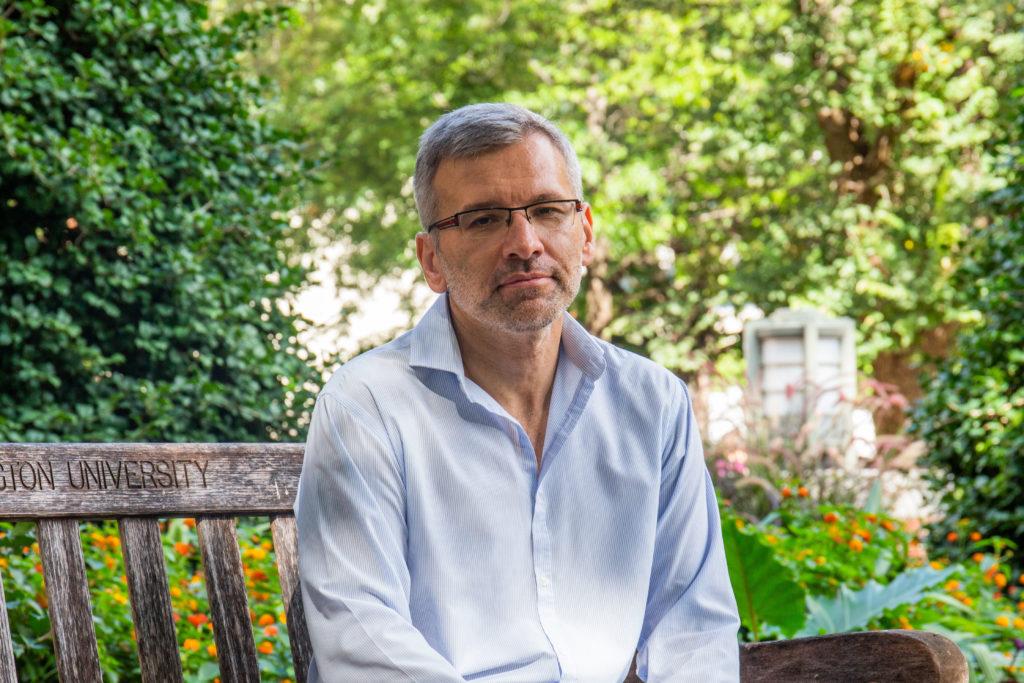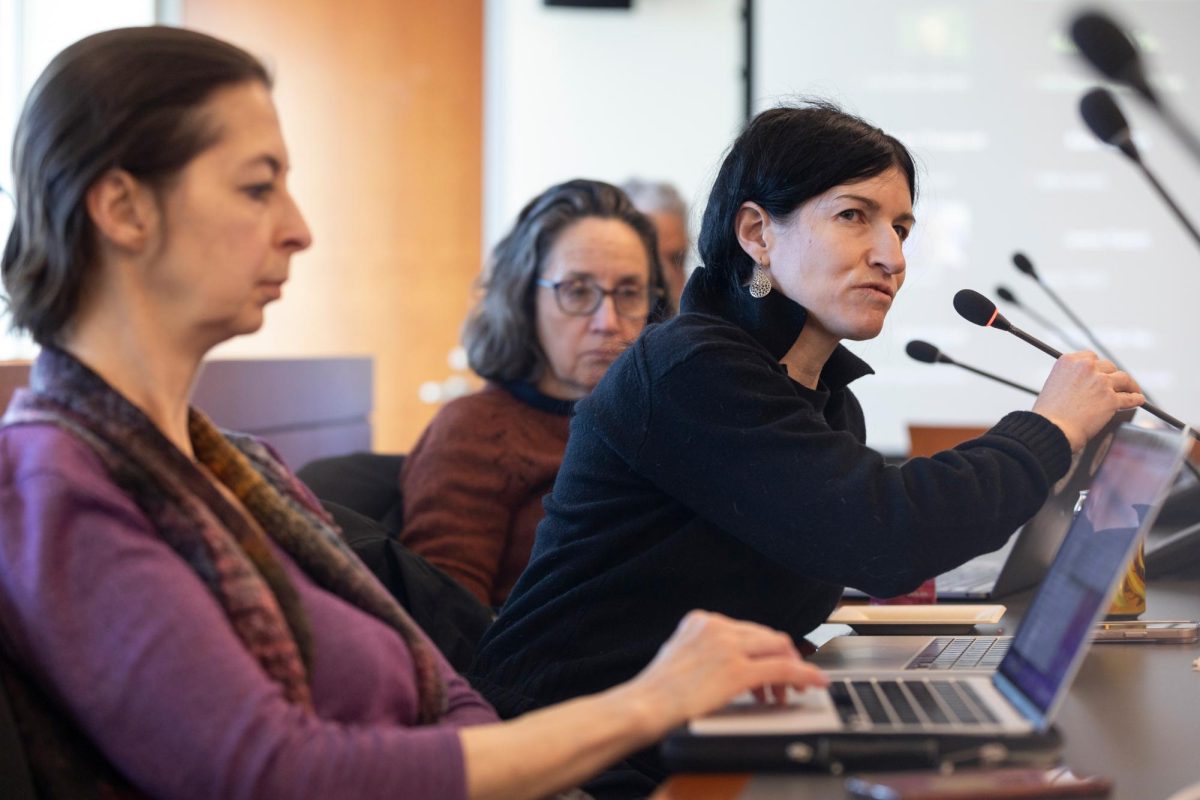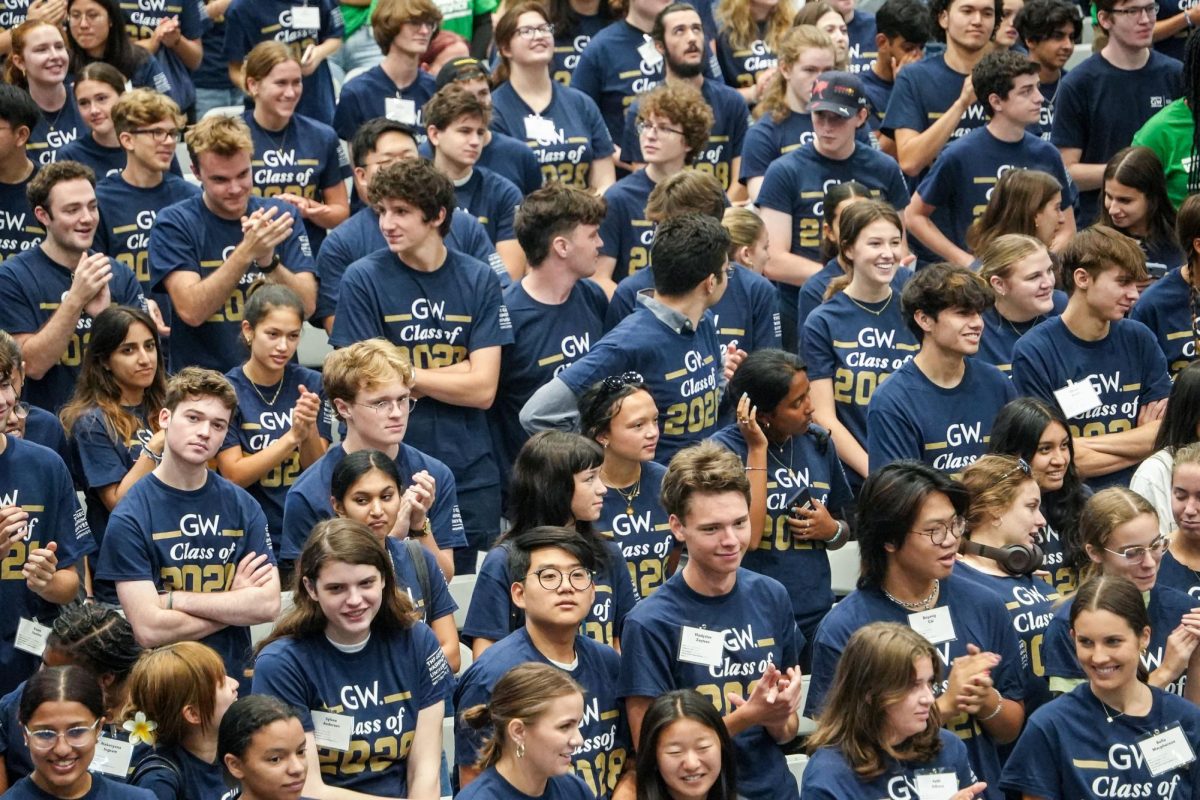Officials launched a fellowship program for scholars displaced by the war in Ukraine through an institute on Eurasian studies in the Elliott School of International Affairs this fall.
The Fund for Scholars Affected by the War in Ukraine pays the salaries of 12 scholars based in Ukraine or in neighboring countries this academic year as well as the salaries for two Ukrainian scholars based in D.C. this semester. Officials said the 14 scholars will research issues in international affairs, like the ongoing war in Ukraine that has displaced more than 13 million Ukrainians and caused an estimated 5,600 civilian deaths since Russia’s invasion in February.
Marlene Laruelle – the director of the Institute for European, Russian and Eurasian Studies – said program organizers worked with the Ukrainian Global University, a network of global educational institutions working to support Ukrainian students and scholars during the war, to advertise the program and select the fellows. She said the program admitted the fellows in August based on “meritocratic criteria,” like the quality of their application and past research.
The fellowship is funded by Jenna Segal, a GW alumna and a member of the Elliott School’s board of advisors, and her husband Paul Segal, who began working with the Elliott School to create the program three weeks after the Russian invasion of Ukraine.
“We want to keep Ukrainian scholars engaged internationally, so the price of the war is not destroying local knowledge and academic knowledge,” Laruelle said.
As of May, the war has damaged or destroyed more than 1,600 schools and universities. Russia’s targeted destruction of educational institutions could impede Ukraine’s ability to rebuild after the war ends because many students have limited access to their education, according to experts in war and conflict.
Laruelle said the program will host monthly virtual seminars to connect the residential and nonresidential fellows and provide opportunities for the fellows to speak to GW students about Ukraine and the ongoing war in classes affiliated with the Institute for European, Russian and Eurasian Studies. She said fellows in the program will also network with faculty who work with the institute and research similar topics, like the historical conflict between Russia and Ukraine.
“I think they are the ones who can still produce critical, analytical views on what is happening, and then they play a key role in teaching younger generations,” she said.
Roman Kalytchak, a senior visiting fellow in the program from Lviv, Ukraine, said he originally came to D.C. as a Fulbright Scholar affiliated with GW’s American studies department last October and expected to return to Ukraine this year but was unable to because of the war. He said the fellowship’s financial support allowed him to stay in D.C. and continue his research after his Fulbright scholarship ended this fall.
“The main advantage of the fellowship, in general, is that GW was able to bring together around 20 scholars, Ukrainian-based scholars,” he said. “It is important. Not Ukrainian scholars from American universities, but Ukrainian-based scholars so they have first-hand knowledge.”
He said the program is “mutually beneficial” to the fellows and to the institute because it provides Ukrainian scholars with the funding to continue their work and the fellows bring the institute first-hand knowledge to further its understanding of Ukraine.
“I think your country needs more knowledge, more expertise on Ukraine,” he said.
Kalytchak said his research revolves around how Ukrainians studying the United States see the U.S. as a global actor and how that perspective has evolved since Ukraine gained independence in 1991. He said he can further his research and understanding of U.S. diplomacy because of his location in D.C. through connections to diplomats and government agencies, like the Ukrainian embassy.
Kalytchak said the institution’s creation of the fellowship program and the University’s expression of support for those impacted by the Russian invasion of Ukraine are signs of “solidarity” with Ukrainians.
“It was an important gesture for us, for Ukrainians active in this University, to see this support from GW,” he said.
James Hershberg, a professor of history and international affairs and a member of the institute, said the fellowship’s support of Ukrainian scholars assists the broader Ukrainian educational community because Russia continues to suppress scholarship and target educational institutions in Ukraine through its military attacks.
“I think it’s very important and very needed because obviously anyone in Ukraine is under threat, but academics, in particular, are under threat,” he said. “And there’s a history going back to the Soviet period and earlier in Russian history of authorities in Moscow trying to extinguish Ukrainian culture, and specifically academic centers.”








